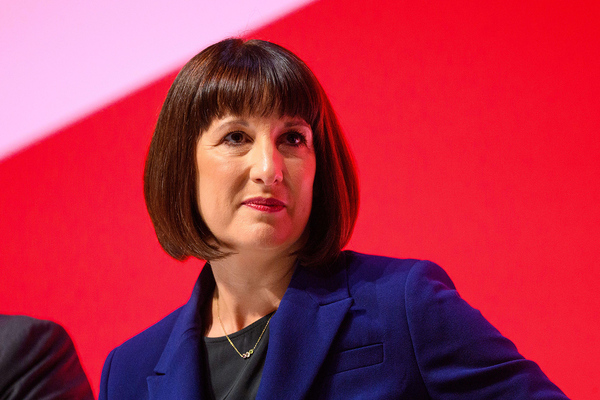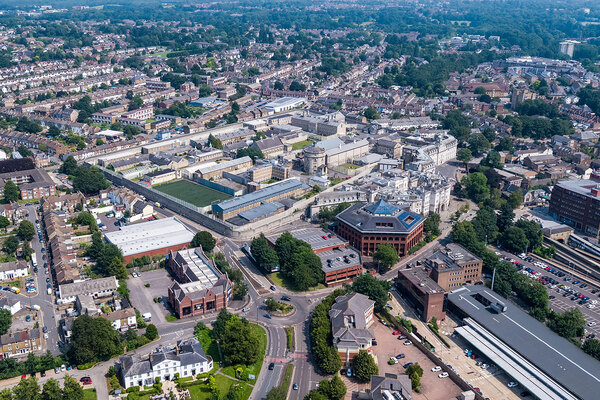You are viewing 1 of your 1 free articles
Budget: Reaction round-up
Commentary on the key announcements from today’s Budget from a selection of key sector spokespeople.

House building
Jonathan Manns, associate director of planning at Colliers International, said: ‘Nationally, the government needs in excess of 3,000,000 new homes by 2020. In London, a population increase of 25 per cent is anticipated by 2030 taking the city from 8.3 million residents to 10 million. The delivery of 15,000 homes at Ebbsfleet, in a location with existing infrastructure and planning permissions in place, therefore fundamentally fails to address the current housing crisis.
‘Likewise, references to a new ‘garden city’ in South-East of England will provide scant reassurance to the towns and cities of the country’s now disbanded regions which continue to face considerable challenges in delivering economic growth. The Government’s brazen failure to confront serious questions about housing growth, green belt development and strategic matters risks delaying the recovery on the grounds of political expediency.
Eric Pickles, communities secretary, said: ‘This year’s Budget shows how housebuilding is central to our long-term economic plan, with measures to get Britain building and support to help hard-working people realise their dream of home ownership.
‘Today’s multi-billion package will boost housebuilding, particularly on brownfield land, create new jobs and allow up to an additional 120,000 aspiring homeowners to buy a home.
‘The moves will get workers back on site across the country, including at large sites like Ebbsfleet, help smaller builders to restart work on stalled developments, and make sure people who want to build their own home can.’
James Pargeter, head of residential projects at Deloitte Real Estate, said:
‘The release of two major housing announcements by the government over the weekend indicates the major political significance of housing as a concern for the electorate. At the 2010 general election, housing was the 18th most important issue for voters. Current polls indicate that this has risen to fourth.
‘The main cause of this concern is the continued insufficient level of housing supply. Although growing 23 per cent in the year to December 2013, housing construction starts are at 122,590. This is still barely half of the rate of projected household formation - 230,000 to 250,000.’
Funding for small house builders
Robert Grundy, chief executive of Savilles, said: ‘In the sense that SME housebuilders have been the slowest to recover and been hit very hard, I would say this is positive news. It’s been hard for them to get working capital. The main house builders have recovered and are posting strong balance sheets, but if you look at the volume of construction pre credit crunch, a lot comes from smaller and medium firms.’
Clive Barnett, head of social housing at RBS, said: ‘We are actively out there trying to lend across SME builders and housing associations, but extra choice helps- if there’s more competition that can only be a good thing.’
Paul Rickard, director of corporate finance at Circle Housing, said: ‘I have spoken to a lot of SME builders and there pipeline has increased massively, but they can’t find the finance to process it. So I would welcome this move.’
Philip Hogg, chief executive of Homes for Scotland, said: ‘As well as providing measures to improve business productivity and increase apprenticeships, the chancellor has clearly listened to the concerns we raised in our pre-Budget representations over the problems smaller home builders, who are a key component of our industry and its ability to deliver the many thousands of homes required across the country, face in accessing development finance.
‘We now need to get the detail of this funding allocation to see if it applies north of the border.
‘If not, we look forward to early confirmation from the Scottish Government, with whom we have already tabled this matter as a priority issue, that comparable support will be provided for smaller home builders here.’
Brian Berry, chief executive of the Federation of Master Builders, said: ‘Access to finance is a major stumbling block for viable SME house builders so this government intervention is much needed as many major banks are still reluctant to lend for small residential developments. This additional support will provide the necessary finance to small house builders and help increase the overall supply of new housing through a well-functioning SME sector.’
Mayor Jules Pipe, chair of London Councils said: ‘The chancellor’s announcement of half a billion pounds of finance to small house builders is a welcome move. We know that just 27 companies are responsible for around 70 per cent of the housing starts in London. Yet 20 years ago, around two-thirds of housing was built by companies employing fewer than 500 people.
‘Encouraging small businesses into the market would provide more competition and foster the right environment to deliver badly-needed homes. Early and constructive engagement with local government is absolutely essential to ensure support is finding its way to where it will make the biggest impact.’
Self build
Anna Scott-Marshall, head of external affairs at the Royal Institute of British Architects, said: ‘We welcome the government’s announcement to take forward our policy on allocating land for self and custom build homes through the Right to Build programme and the promise that the government will finally publish its long promised prospectus on garden cities.’
Lack of announcements for social housing and renters
Denise Hatton, chief executive of YMCA England, said: ‘The chancellor openly states that his budget was one for the ‘makers, doers and savers’ of the country, but what about those not lucky enough to be in this position?
‘YMCAs across the country help so many young people who aspire to get work and find a decent home in which to live, but who are consistently held back by a lack of available jobs and affordable housing.
‘We need to see a stronger commitment from government to address the needs of single young people if we are going to be in a position to nurture the next generation of ‘makers, doers and savers’ and secure the long term economic recovery that the chancellor is looking to achieve.”
Simon Rubinsohn, RICS chief economist, said: ‘A tight budget with little room for manoeuvre. Yet again, the chancellor has failed to overhaul the stamp duty system, with wages well below inflation and rents rising rapidly for years, many have been struggling to save for a deposit, let alone meet a huge tax bill. Helping more buyers to enter at the lower end of the market would have resulted in more movement and transactions, freeing up stagnant property chains and bringing badly-needed housing onto the market.’
Mayor Jules Pipe, chair of London Councils, said: ‘It is disappointing that the chancellor did not take this opportunity to scrap the Treasury’s block on councils investing in building new homes, when backed up by a stable funding stream. Lifting this housing borrowing cap would create 60,000 new homes and 19,000 new jobs, adding 0.6 per cent to GDP, and further stimulate competition in the construction market.’
Welfare cap and care
Leslie Morphy, chief executive of Crisis, said: ‘Though the maths might look solid today, we fear that predicting something as complex as national demand for benefits five years in advance is incredibly risky. If the sums do turn out to be wrong, in four of five years’ time it will cause poverty, misery and homelessness.
‘Combine this with another woefully inadequate housebuilding pledge – a drop in the ocean compared to demand – and you have a recipe for increased demand, higher prices, a higher benefit bill and yet more homelessness.’







